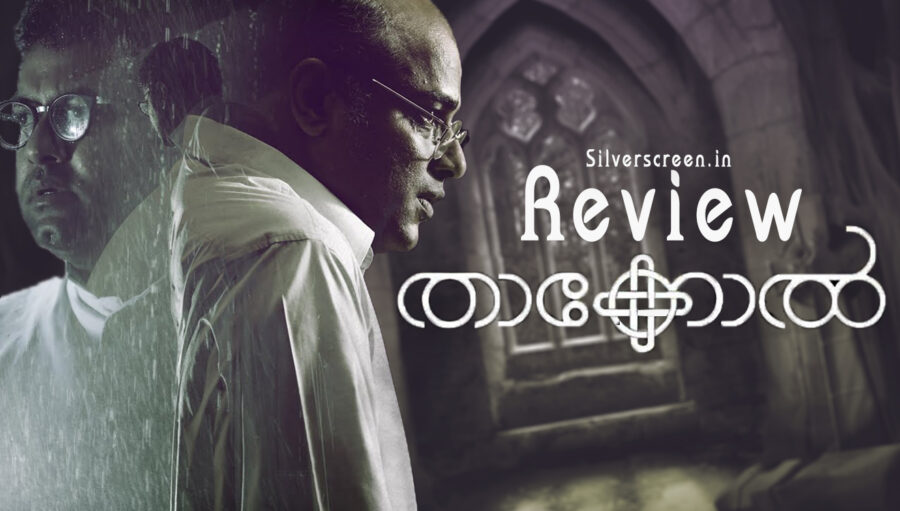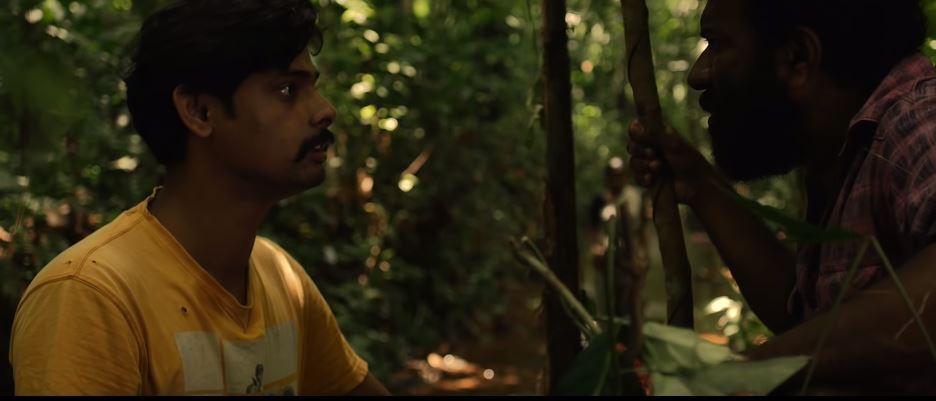Ambrose (Indrajith), the central character of Thakkol (Key), comes from a murky place. For the most part of his life, he served a tyrannical head priest, Father Mankunnathu Paili (Murali Gopi), as an apprentice. When the film begins, he is on bed, shivering from a nightmare in which Paili caught a child version of him redhanded while trying to have a harmless moment of pleasure. Meekness, you see, has grown into him physically and psychologically.
Thakkol, directed by debutante Kiran Prabhakar, is an interesting drama when it is exploring this hierarchical relationship within the office of the church.
Paili uses his age, power and innate superiority complex to make the junior’s life miserable. The low-angle shots capture Ambrose in his moments of embarrassment, unable to stand up for himself when Paili harasses him in public. Paili hasn’t just usurped his reality but his sub-conscious too. Even Ambrose’s haemorrhoids are, his doctor says, a psychological effect of this toxic relationship. One of the prime questions Ambrose grapples with is about the moral ambiguity of Paili’s behaviour towards him. Is he plain evil or a man who can’t bring himself to expressing love and kindness? And as the film proceeds, the two men, who begin as individuals with little similarities, start to become the same people.
The core of Thakkol isn’t this profound affair, but an object – a key – Ambrose becomes obsessed with, which eventually shapes the trajectory of his life. It was handed over to him (indirectly) by a local patron of the church, Clement (Renji Panikker), the shrewd head of a powerful family, before his untimely death. Ambrose and Clement’s bosom friend Thoma (Nedumudi Venu) become invested in tracing the key’s owner, for Clement’s wife swears it doesn’t belong to her husband.
This part of the film starts off terrifically. Kiran Prabhakar’s writing has the quality of an old-fashioned detective novel where the practical part of a crime investigation gets the same weight as the many emotional turmoils the investigator passes through.
The Christian imageries, the many unspeakable matters the village’s closely knit community bears within itself, and the motley bunch of characters the film introduces the audience to – the flirtatious wife of Thoma, Paili’s butler who is sympathetic towards Ambrose, a young priest who is Ambrose’s strongest ally – add to the film’s atmospherics. Dialogues are crisp, laden with layers, without being overbearing. The mystery the film deals with isn’t the Hitchcock kind which has a great shock value, but something abstract and philosophical, which demands patience to be understood.
Ambrose is a closet writer and Thoma is a retired sleuth – professions where curiosity is the key. It looks utmost natural when they decide to go after the key.

images
Indrajith fits in perfectly as Ambrose. There is something undecipherable about his onscreen persona – it could be plain passivity, it could also be a consciously constructed impenetrability. Murali Gopi delivers a powerful performance as Paili whose rage is sometimes a glass that gives away his vulnerability.
Recommended
What really harms the film is the excess melodrama in the narrative which slows down the proceedings. Right in the middle of an interesting turnaround, the film digresses to other sub-tracks of the plot, disrupting the rhythm of the narrative. Sarah (Iniya), a Mary Magdalene kind of figure, becomes the new ‘key’, but the cliches in this part of the story reduces it into a mediocre affair. There is nothing here you haven’t seen or heard about before.
Thakkol’s interest in human conditions and human behaviour is off-beat, not something commercial film genre takes up often. But it doesn’t have a script that’s focused on what really matters, and well invested in keeping the audience engaged. It’s this halfheartedness that turns the film less appealing than what it’s capable of.
The Thakkol review is a Silverscreen.in original article. It was not paid for or commissioned by anyone associated with the film. Silverscreen.in and its writers do not have any commercial relationship with movies that are reviewed on the site.



